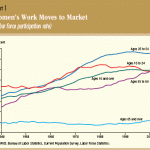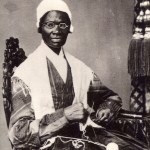women
Answer: pregnancy.
Unlike most animals, it is the male seahorses that give birth to live young. A new study conducted at the University of Sydney and published in Molecular Biology and Evolution, found that the male seahorses not only carry out the pregnancy, they also supply nutrients to the developing embryos, including fats and calcium. The researchers suspect that these nutrients are secreted into the brood pouch where they can be absorbed by developing embryos. According to quote from study author Dr. Whittington, published in the International Business …
April 2010 saw two major workplace disasters: The April 5th explosion at the Upper Big Branch Mine in West Virginia, where 29 workers lost their lives, and the April 20th explosion at the BP Deepwater Horizon oil rig that killed 11 workers. Four years later, Ken Ward Jr. of the Charleston Gazette reminded us that "for those who lost loved ones, April 5 is now forever the day that they became a widow or an orphan, the day they lost their son or their best friend." He posted the names of the 29 miners and a slideshow memorial about them at his Coal Tattoo blog.
The BP Deepwater Horizon…
It occurred to me after I posted my piece last week about rock climbing and arthritis that all of the photos of climbing were of men. This was purely coincidence - I was editing photos of last week's competition in reverse chronological order, and I'd only finished the photos of the Men's finals by the time I was done with the post.
But I think it's important to note how amazing the women were as well (and it gives me an excuse to post more of my photography). In fact, this year, I thought that the women's bouldering problems were more interesting, and better demonstrated the skill and…
Isn't it obvious? We gave women the right to vote. As Raw Story reports:
Rev. Jesse Lee Peterson, a tea party activist that's appeared several times on Fox News, and founder of an organization where Sean Hannity serves as an advisory board member, said in a sermon recently published to YouTube that America's greatest mistake was allowing women the right to vote, adding that back in "the good old days, men knew that women are crazy and they knew how to deal with them."
I'm completely on Patterson's side, in fact, I'm sure he agrees with me that the real problems began when we extended the…
Friday will be the two-year anniversary of the signing of the Affordable Care Act, and there's plenty of discussion about the law's impacts and the upcoming Supreme Court oral arguments. While many of the law's provisions won't take effect until 2014, it's already having an impact on some aspects of health insurance. I described several of these in a post on the law's one-year anniversary, so now I want to focus on two recent stories that underscore the difficulty and importance of changing how the US handles health insurance.
First, it's important to remember that the law isn't an overhaul…
Note: I wrote a slightly different piece under this title on ye olde blogge back in August, but given the emphasis on discussion of contraception going on, I thought it was worth reiterating and mulling over further.
When your specialty as a foster family is taking large sibling groups, you hear a lot of stuff you'd rather not. The typical comment involves forced sterilization, and it is hard sometimes not to have a little sympathy. Of the kids we've taken or been called about, we've had three groups of five and three of four, and almost all have involved very young mothers, sometimes with…
One of our families favorite things to do is check out old cemetaries - my kids love to read gravestones and talk about the stories that came behind them. I love cemetaries - I find them comforting in an odd way, although I'm not fully sure I can explain why, and I'm glad that my children have the same passion for historical records and also the same pleasure in knowing something about lives before ours.
Walking in old graveyards is also always a reminder of how fortunate I am. Most graveyards have a "children's" section, or family stones record the brief and incredibly short lives of…
On the 31st of October we will officially reach 7 billion people on the earth. Over the next week or two we'll be talking a lot about population issues, and I wanted to start by doing a light revision of an article I wrote some years ago about a concept a lot of people don't grasp very well - the idea of demographic transition and what it means.
The term "Demographic Transition" describes the movement of human populations from higher initial birth rates to a stabilzed lower one, and seems to be a general feature of most societies over the last several hundred years.
Initially, birth rates…
Perhaps the first widely read piece I wrote was entitled "Peak Oil is a Women's Issue" and focused on the ways that an energy decline might affect women. At the time it was written (the earliest version appeared in 2004) the peak oil movement was largely a group of men, mostly geologists, oil men, a few economists and journalists interested in a growing issue.
My argument (more refined variations of which I've continued making for years) was that women need to organize around energy and environmental issues, because they stand to lose a great deal in a society that has fewer resources to…
I don't know that I ever announced this on the blog, but I'm off tomorrow to NYC for an event run by CUNY Feminist Press - last fall they named me one of 40 Young Feminist Writers under 40 whose work on food and environmental issues was changing the way people think about women's issues. I didn't make it to the October Gala for family reasons, but I'm excited to head downstate tomorrow and meet the other folks!
I admit, I'm excited that the context that I've been working to bring to connect our energy history to the way gender roles have changed has been noticed! I've won a bunch of awards…
Today is the 100th Anniversary of International Women's Day, founded to celebrate the achievements of women. Founded in Europe to advocate for greater participation of women in the public sphere, International Women's Day focuses heavily on those public sphere accomplishments of women - as political leaders, in education, in activism. Those are important and powerful things, the more important because most of us still have visceral memory of women's past. Consider this Guardian interview with women talking about what has changed in their lifetimes.
At the same time that we speak about the…
In my recent essay "300 Years of Fossil Fuels and Not One Bad Gal" I wrote:
...a narrative in which women's entry in the workforce is responsible for our dramatic rise in fossil fuel consumption and carbon emissions can look superficially like a tool for those who would prefer that women go back home and come out of the workforce, and would like to blame feminists and feminism for our present ecological disaster. Indeed, if no one has come up with this ideological claim yet, I'm sure it is only a matter of time before someone explains earnestly to me how wimmen's rights are destroying the…
If you haven't seen this video by Richard Heinberg and the Post Carbon Institute, you should. In a lot of ways it is an excellent summary of the history of fossil fuels, entertainingly and creatively done. In some ways, it is extremely valuable as a basic educational piece.
I'm very impressed with the clarity of this video, but it does have an odd gap in it - all of the human history of 300 years of fossil fuels doesn't have a single female person in it - not one. Women are addressed by implication when population is mentioned - but all the little hand-drawn people are men. There is a…
The Dog Zombie has an interesting post discussing women in vet med--and why there are so many. She notes that her school is only 12% male, versus more of an even distribution in med schools, and the recent discussion of gender imbalance in science blogging. This is interesting to me, as my personal vet is male, as are almost all of the vets we collaborate with for our research. Of course, the gender distribution of veterinarians in academia may well be more gender-balanced (or even male-skewed) than those currently in vet school or recently graduated.
DZ posits some possible reasons for this…
In a recent New York Times article, Celia Dugger reports on encouraging results from two studies on interventions that help women in South Africa and Malawi reduce their risk of HIV infection. The first study found that women using a vaginal microbicidal gel were 39% less likely to contract HIV than those using a placebo. It has been published in Science, and its authors write in their abstract:
The CAPRISA 004 trial assessed effectiveness and safety of a 1% vaginal gel formulation of tenofovir, a nucleotide reverse transcriptase inhibitor, for the prevention of HIV acquisition in women. A…
I was struck today by the news that the Italian region of Lombardy is going to start paying women not to have abortions. As a demographic move, it is a comparatively small and insignificant one, in a nation already well below replacement rate. If this resulted in the cancellation of every abortion in the region, it wouldn't matter very much in the great human scheme of things. What matters is whether this has effects on other nation's policies - and of course, that reproductive policies never take place fully in the great human scheme of things.
Generally speaking, I'm strongly in favor…
I'm the lone female in a house of men - when new housemate Phil moves in next month that will make six guys in my home and well, me. There are assorted female creatures on my farm - to be precise, one dog, two cats, two rabbits, 7 dairy goats, 12 ewes (seasonal) and about 40 female birds of various types, but they do not count.
Because I'm the only female in the household, I cannot but be aware that some of the messages they get about male and female roles will be built in a fairly narrow body of evidence - ie, the woman they see most is me, so how we do things may look like…
As you know, Greer and I at times have our differences in perspective, but I think this week's column is particularly acute, and offers up two point that I think are really essential to grasp when thinking of the future.
The first is that technical feasibility is not all - that technical feasibility rests on a complex bed of other feasibilities. Thus, simply observing that it is technically possible, to, say, create zero impact cities or whatever does not usefully tell us whether we are going to do it. For example, it has been technically possible to eliminate most causes of death in…
Off the top of your head, how many female paleontologists can you name?
Hopefully, thanks to the recent publication of The Fossil Hunter and Remarkable Creatures, the brilliant 19th century fossil collector Mary Anning should spring to mind, but it seems to me that women are underrepresented in discussions of paleontology. In books, documentaries, news reports, and other popularizations, male authorities (from Georges Cuvier and William Buckland to Bob Bakker and Jack Horner today) take center stage much more often than women, and this is despite the fact that there are (and have been) many…
Reader Jason commented on my post about compulsory smiling thusly:
I just wanted to thank everyone for the comments here. They've been enlightening... to be honest I had never heard of anyone being ordered to smile outside of greeter/public relation jobs (chalk it up to youthful naivete, I suppose). With that in mind when I first read the post it struck me as an overreaction to something minor, but it's hard to argue with a few dozen women from all over with the exact same stories and reactions.
I don't know if I've ever been guilty of this behavior in my life (I hope not, though I am a…



